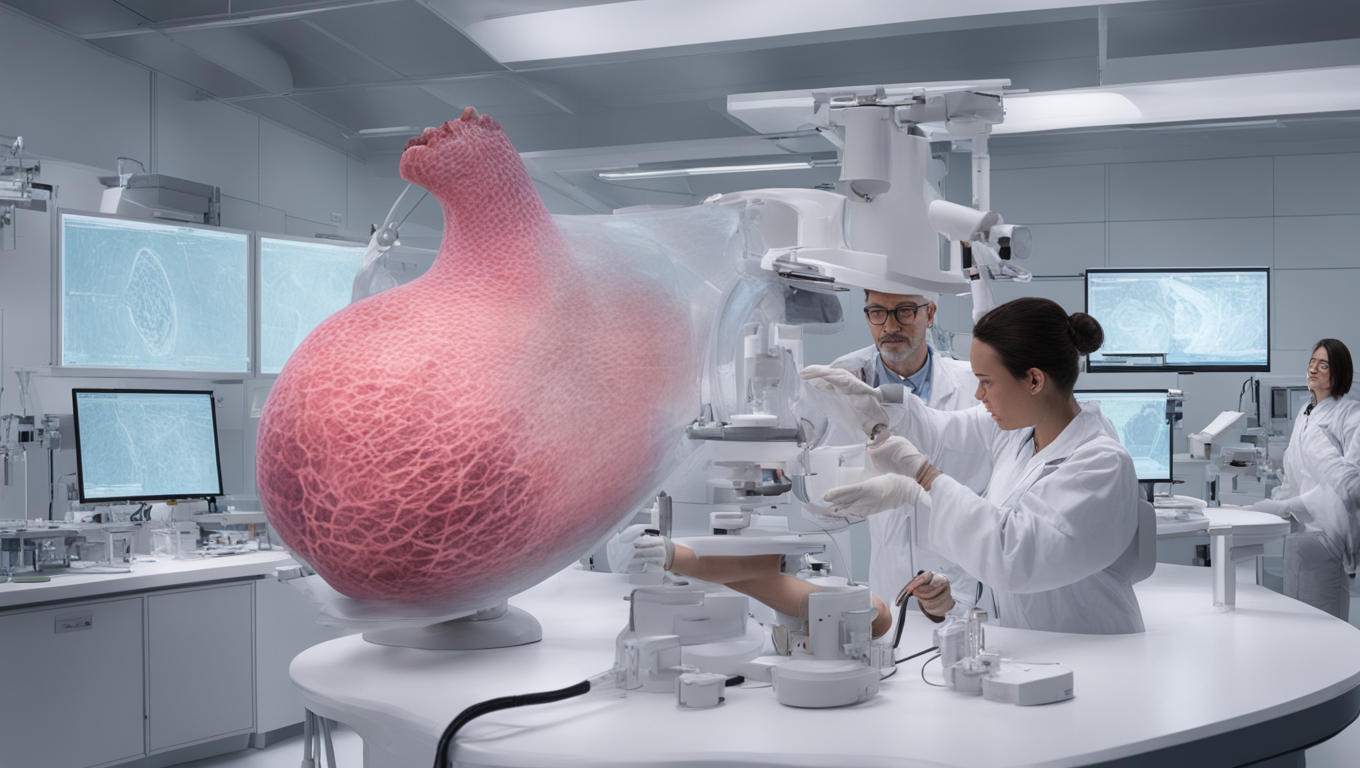In a groundbreaking research program in Spain, scientists are harnessing the power of digital modeling and artificial intelligence to develop personalized treatment plans for breast cancer patients. Collaborating with 13 institutions across the country, including hospitals and associations, the researchers are collecting genetic, physiological, and behavioral data from participants using wearable devices. By applying AI algorithms to this data, they aim to enhance the efficacy of treatments. Unlike traditional approaches where treatments are administered based on trial and error, the digital models created through this program can simulate millions of disease trajectories resulting from various modifications in patient factors.
Miguel Quintela, an oncologist and director of the Clinical Research Programme at the Spanish National Cancer Research Centre (CNIO), explained the potential of this approach, stating, “If this patient digital model is accurate enough, you can simulate millions of disease trajectories resulting from modifying one patient factor or another.” By simulating different scenarios, doctors can generate a multitude of personalized treatment decisions that could significantly improve patient outcomes.
Lucía González Cortijo, head of the medical oncology department at Quirónsalud University Hospital, highlighted the future possibilities of this research, stating, “I don’t know if they will be able to be applied immediately or in the medium-term in our patients, but with more research, it could be possible to administer cancer medication differently.”
Breast cancer is the leading cause of cancer-related deaths among women in Spain, and globally, it caused 685,000 deaths in 2020, as reported by the World Health Organization. While it is widely recognized that cancer treatments need to be tailored to each individual patient, existing treatment guidelines are often based on a limited number of tumor types and an “average patient” profile. The digital twins project aims to change this dynamic by creating personalized treatment plans for patients with advanced breast cancer.
Participants in the project, like Yolanda Ramos, a 54-year-old hairdresser, have already experienced the challenges of conventional treatments. Ramos has triple-negative breast cancer, a particularly aggressive form of the disease. She has undergone multiple treatments in recent years, but the effects have only lasted a few months. She expressed her hope that this research will benefit future patients, saying, “When the treatment stops working, they change my treatment, and now I am on carboplatin and waiting for some tests to find out if it works or not.”
To collect a comprehensive picture of the patients' experiences, the wearable devices are linked to a smartphone app where participants answer questionnaires that reflect their emotions and general well-being. This approach allows researchers to capture detailed information about the patients' feelings and experiences that may not be easily addressed during clinical consultations. Ramos emphasized the importance of considering these aspects of the patient experience, explaining, “The side effects of the chemo, how you feel, if you can get relief from the drugs, if not. If you need a psychologist. All these things come in handy because cancer is not just about going bald, cancer is so much more.”
The researchers involved in the digital twins project have ambitious goals for their work. They aim to develop a comprehensive treatment plan that takes into account individual patient characteristics. Additionally, they hope to create an interface that enables real-time monitoring of treatment trajectories, allowing for early detection of deviations from the desired path. By detecting potential treatment failures earlier, doctors could intervene and adjust the treatment plan before it’s too late.
While the results of this research project are yet to be published, the potential impact of this approach is immense. By leveraging digital models and AI, clinicians can revolutionize the way breast cancer treatments are administered, offering patients more effective and personalized care. As Quintela emphasized, “That’s one goal, a complete treatment plan. And the second one is to be able to have an interface that somehow allows some more direct and dynamic contact care so that we detect deviations in real-time from the desirable treatment trajectory.” With further advancements in this field, the future of breast cancer treatment could be transformed, providing hope and improved outcomes for patients worldwide.





Use the share button below if you liked it.